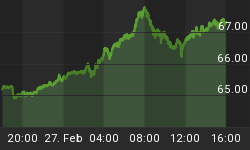"It was the best of times, it was the worst of times ...," goes the memorable opening line of Charles Dickens' famous 1859 novel "A Tale of Two Cities". Dickens' sharp focus on dualities is analogous to today's macro investing environment.
Recent conditions in emerging and Western markets could not be more different -- robust versus anaemic GDP growth, inflationary versus deflationary backdrops and gushing versus trickling credit conduits.
Looking ahead, it is difficult to see a change in dynamics. If Western economies remain mired in soft conditions (which we expect for some time), then monetary policy will stay accommodative -- and perhaps increasingly unconventional and frantic. Under that scenario, expect Bernanke et al. to indulge in additional helpings of QE, with benchmark lending rates remaining tethered to near-zero.
This is the global paradox at hand. The tentacles of the Fed's monetary easing are reaching far beyond American borders. Collateral effects in international markets are running high. Chinese officials have been particularly vocal about their worries, citing "imported" inflationary pressures and heightened capital inflows from the US. But can emerging market asset prices remain elevated, driven by monetary easing in the West?
To read more: please click the following safe link to this month's ETFocus written by Tyler Mordy.
![]() Hot Money Blowing Emerging Market Bull Conditions?
Hot Money Blowing Emerging Market Bull Conditions?















